By Femi Soneye
When Mele Kyari assumed duty as the Group Managing Director of the now defunct Nigerian National Petroleum Corporation (NNPC) on July 7, 2019, it was at a critical period not only in the life of the corporation but for the entire Nigeria’s oil and gas sector as well as the national economy.
It was a turbulent period characterized by low production, burgeoning vandalism of oil pipelines, oil theft on a grand scale, and a demoralized staff of the corporation.
His assignment was clearly cut out. A lot was riding on his appointment as time seemed to be running out. It clearly wasn’t a task for the faint-hearted. But Kyari was no spring chicken. As an insider, he is well acquainted with the workings of the NNPC. He was going to give it his best shot certainly.
Like every determined achiever and visionary, Kyari hit the ground running. Within a few days of his appointment, he unveiled his “Roadmap to Global Excellence” anchored on the TAPE Agenda. In the roadmap, TAPE represents Transparency, Accountability, and Performance Excellence. Throughout his time as NNPC GMD, the agenda remained the guiding rubric of his administration at the corporation.
Following his fresh appointment in 2021 by Nigeria’s President Muhammadu Buhari as Group Chief Executive Officer of the new Nigerian National Oil Company Limited (NNPCL), successor company to the NNPC under the new dispensation ushered in by the Petroleum Industry Act, which came into force in 2021, the TAPE agenda became the standard for steering the new company forward in a global economy still writhing from the effects of the Coronavirus pandemic which devastated the world in 2020 and 2021.
It is just a little over two years since he was appointed NNPCL CEO but the performance of the company under him has been impressive, to say the least. Under him, situations and circumstances which in the past had appeared insurmountable had been turned around.
One of these challenges is the mindless theft of Nigeria’s oil by criminal cabals and individuals which left Nigeria prostrate for a long time being unable to meet its oil production quota. To solve the problem, the management of NNPCL under Kyari’s astute leadership launched the “Crude Theft Monitoring Application”.
The portal has application options for reporting incidences with prompt follow-up and responses and another one for crude sales document validation.
Before the launch of the application, Kyari in a determined bid to check oil theft and vandalism of pipelines, had in March 2022, accompanied the then Minister of State for Petroleum Resources, Chief Timipre Sylva, to the creeks in the Niger Delta to check the malfeasance. Other top officials of government including the Chief Executive Officer of the Nigerian Upstream Petroleum Regulatory Commission (NUPRC), Gbenga Komolafe; Chief of Defence Staff, General Lucky Irabor, and security operatives were also on the team.
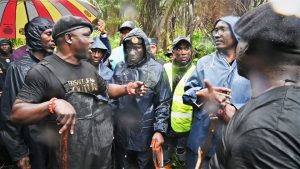
In a subsequent operation, Kyari announced the discovery of a four-kilometer illegal oil connection line from Forcados Terminal into the sea which had been in operation for nine years.
Certainly, efforts at checkmating crude oil theft and illegal refineries are yielding positive results as there has been a significant spike of daily oil production to 1.6 million barrels per day.
In addition, according to Fourth Quarter 2022 figures released, Nigeria has regained its position as the largest crude oil producer in Africa, ahead of Algeria’s 1.021mb/d and Angola’s 1.088mb/d in November 2022.
Slaying the bugbear
Another key bugbear “slain” by Kyari’s leadership of the company was the consistent losses the old NNPC had suffered before he became its helmsman in 2019.
In 2022, the company posted its second consecutive year of ‘profit’ announcing N674.1 billion in the 2021 financial period and growing it from N287 billion in 2020. The figure represented an increase of N387 billion about 134.8 per cent when compared to the previous N287 billion recorded in 2020.
Kyari, who made the disclosure via the verified Twitter handle of the company, said the improvement followed the approval of the 2021 audited financial statements by the Board of the oil company. He said the NNPC Limited has progressed to a new performance level from N287bn profit in 2020 to N674bn profit after tax in 2021, moving higher by 134.8% year-on-year profit growth.
Aside from recording profit for the company, Kyari has also led the NNPCL to resolve age-old disputes with its business partners notably, the International Oil Companies (IOCs). This is part of efforts at boosting Nigeria’s crude production and unlocking investments in the Deepwater space in the aftermath of the coming into being of the Petroleum Industry Act (PIA) of 2022.
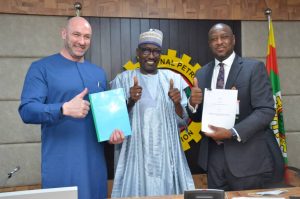
Consequently, the NNPC and the IOCs signed various Production Sharing Contracts (PSCs) agreements that would ensure the production of about 10 billion barrels of crude oil and generate over $500bn revenue. The agreements are the Production Sharing Agreement, Dispute Settlement Agreement, Settlement Repayment Agreement, and Escrow Agreement.
Still on the relationship with the IOCs, a notable accomplishment of Kyari’s leadership of NNPCL is the payment of Nigeria’s joint venture cash-call arrears to the IOCs totaling $5.1 billion. This was made possible through the introduction of the Alternative Funding Approach (AFA), which replaced the erstwhile cash-call payment model.
The AFA model allowed for the utilization of NNPC’s own funds to finance its share of joint venture operations, thereby reducing the country’s reliance on external borrowing and increasing the flow of investment into the industry. Many oil-producing African countries have since adopted this initiative.
Similarly, the NNPC Limited and Addax Petroleum Company signed an asset transfer agreement to end the dispute surrounding Oil Mining Leases 123/124 and 126/137.
With the agreement, the dispute over OMLs 123/124, 126/137, operated by Addax Petroleum Nigeria Limited, has been finally resolved.
The Production Sharing Contract for the blocks was initially signed in 1973 between NNPC and Ashland but was terminated after 25 years.
Also, NNPC signed various Memoranda of Understanding (MoU) with many countries, including the national oil companies of Ghana, Gambia, Guinea, Guinea Bissau, and Sierra Leone in furtherance of the planned landmark Nigeria-Morocco Gas pipeline project.
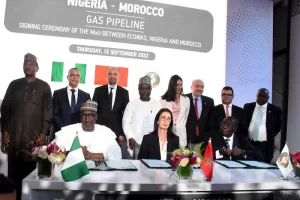
The Nigeria-Morocco Gas Pipeline (NMGP), an initiative of the federal government of Nigeria and the Kingdom of Morocco, is a 5,600 kilometers gas pipeline project traversing 13 African countries namely: Nigeria, Benin, Togo, Ghana, Cote d’Ivoire, Liberia, Sierra Leone, Guinea, Guinea Bissau, Gambia, Senegal and Mauritania to Morocco.
When completed, the project will supply about 3 billion standard cubic feet of gas per day (3bscf/d) from Nigeria to the Kingdom of Morocco and subsequently to Europe.
In 2022 the NNPC Limited sealed a $1.4 billion external project finance agreement for hydrocarbon projects in the Niger Delta. Codenamed Project Panther (under the NNPC Limited/Chevron Nigeria Limited joint venture), the agreement was signed at a ceremony in London.
In that same 2022, the NNPC Limited pursuant to its vision of maintaining a leading position in the Nigerian petroleum downstream sector, acquired OVH Energy Marketing (OVHEM), owner and operator of the Oando downstream assets.
Through this acquisition, NNPC Retail Limited will build on the existing success of OVH and operate model service outlets leveraging OVH’s extensive asset base and commercial capabilities.
But by far, one of the most impressive accomplishments of Kyari’s stewardship at NNPCL is the flagging off in November 2022 of the Kolmani Integrated Development Project in Bauchi State marking the commencement of efforts to exploit oil in the Northern part of Nigeria commercially.
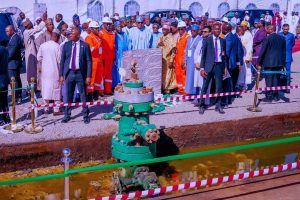
The Kolmani Oil Field, estimated to have a reserve of about one billion barrels of crude oil, OPL 809 and 810, lie in the Gongola Basin of the Upper Benue Trough, straddling Bauchi and Gombe States.
The oil blocks are owned by the Nigerian National Petroleum Company Limited (NNPCL) as a concessionaire with New Nigeria Development Company Ltd, Africa Oilfield Movers Ltd, and SEEPCO as partners.
The well is expected to produce 50,000 barrels of oil daily during the first phase.
Equally noteworthy is the near completion of the Ajaokuta-Kaduna-Kano Gas Pipeline Project, which is currently at 70 percent. The AKK Gas Pipeline Project was inaugurated by President Muhammadu Buhari in June 2020.
Commenting recently on work at the over 600 kilometers facility, Kyari said over $1.1 billion of the $2.5 billion earmarked for the project had been spent so far with the entire money coming from NNPCL’s funds.
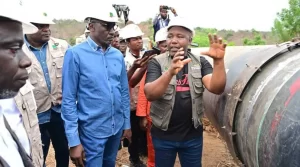
The AKK Gas Pipeline Project will have the capacity to transport two billion standard cubic feet of natural gas daily to three proposed independent power plants in Abuja, Kaduna, Kano, and other gas-based industries, including other identified and proposed commercial off-takers along the entire pipeline route.
Kyari says it is one of the most massive projects the NNPCL has undertaken and is of “immense proportion and value to our country and to the socioeconomic growth of our country”.
There is no doubt that appointing Kyari to head the NNPCL is one of the best decisions taken by President Buhari as leader of Africa’s most populous nation which industry watchers described as appointing a technocrat – a round peg in a round hole.
In addition to the strides outlined above, Kyari has also initiated the rehabilitation and upgrade of the Port Harcourt, Warri, and Kaduna refineries.
He has also unveiled programs and policies that have enhanced transparency and efficiency in the operations of the company. These include the setting up of a new trading subsidiary, the establishment of a new crude oil marketing division, and the implementation of a new performance management system, which enhances accountability in the Nigerian oil and gas sector by publishing monthly financial and operational reports.
Soneye, a journalist of more than 25 years stint, and Publisher of Per Second News, writes in from Lagos











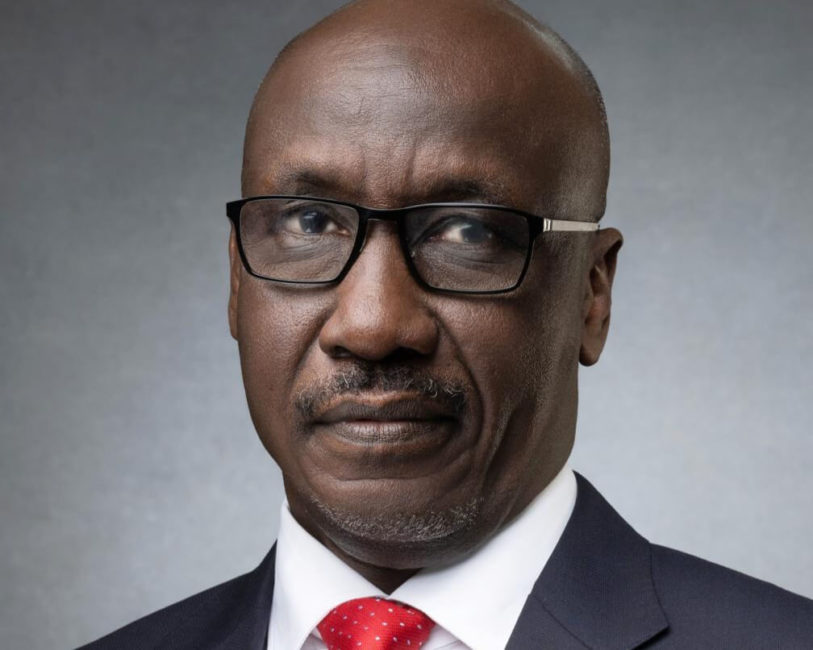

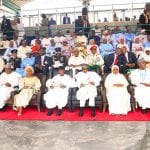







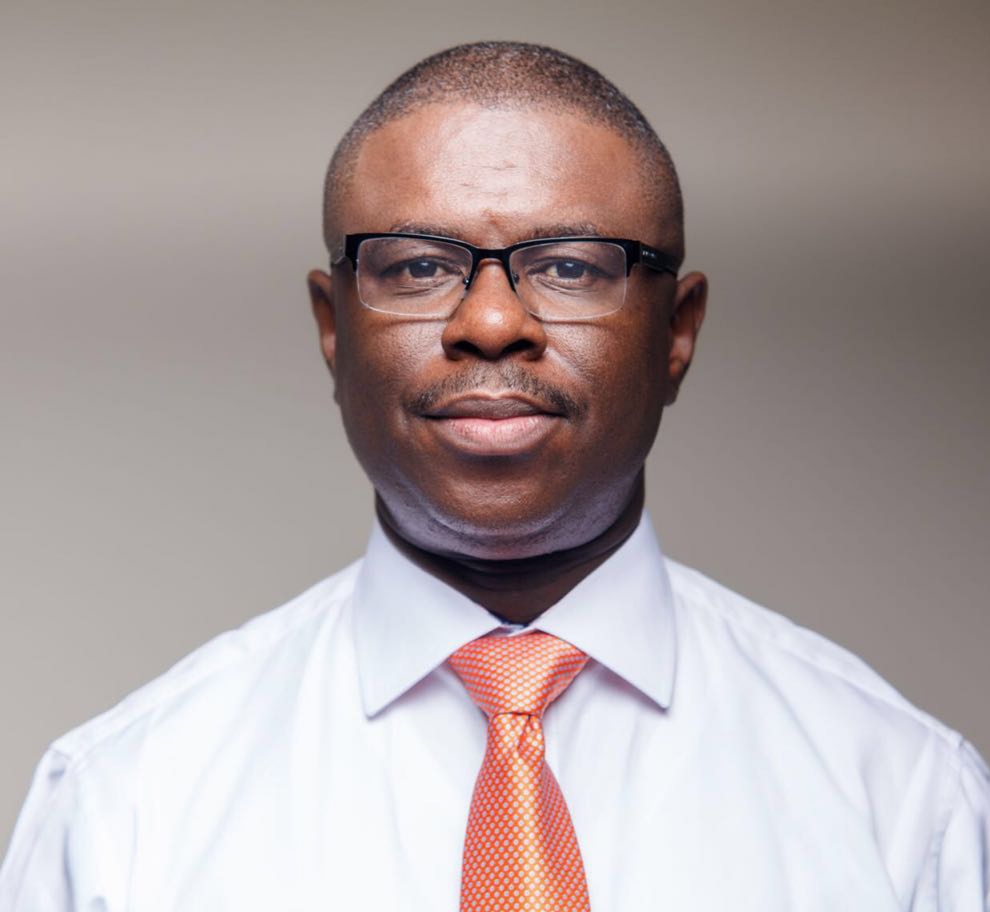

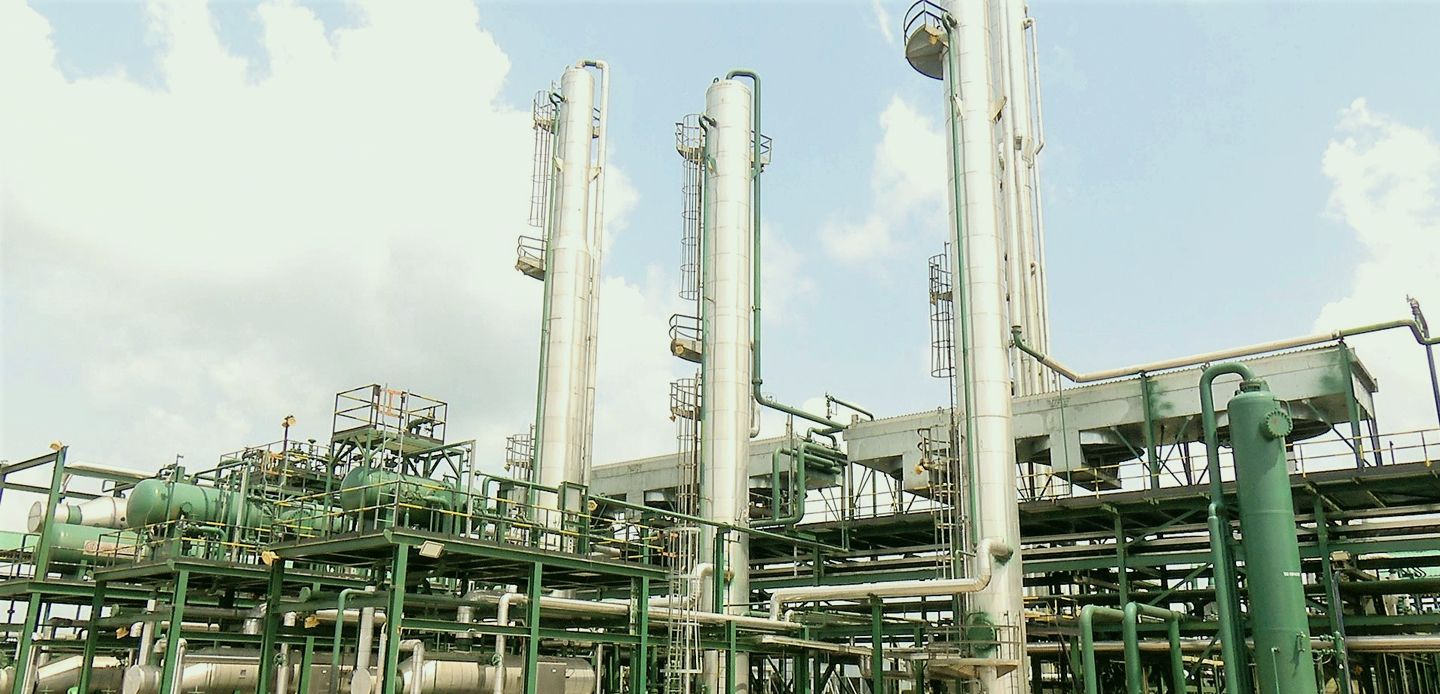
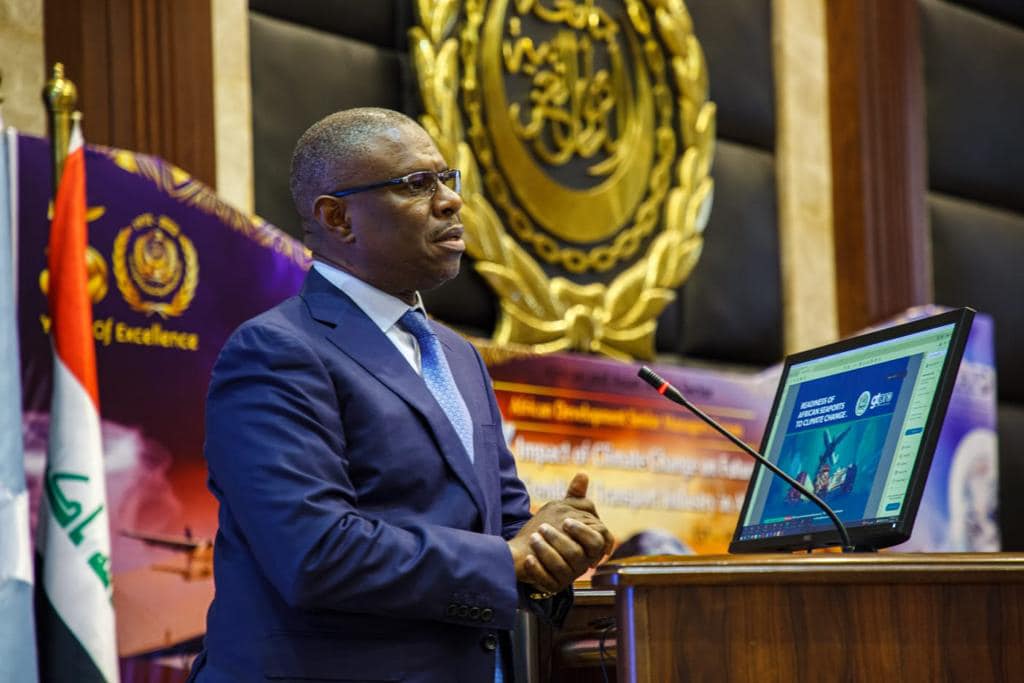

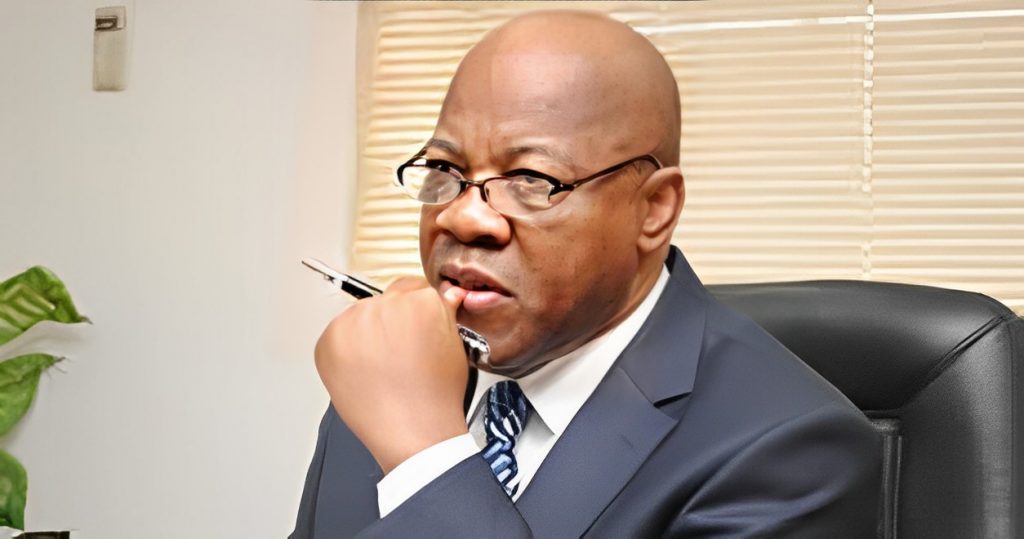
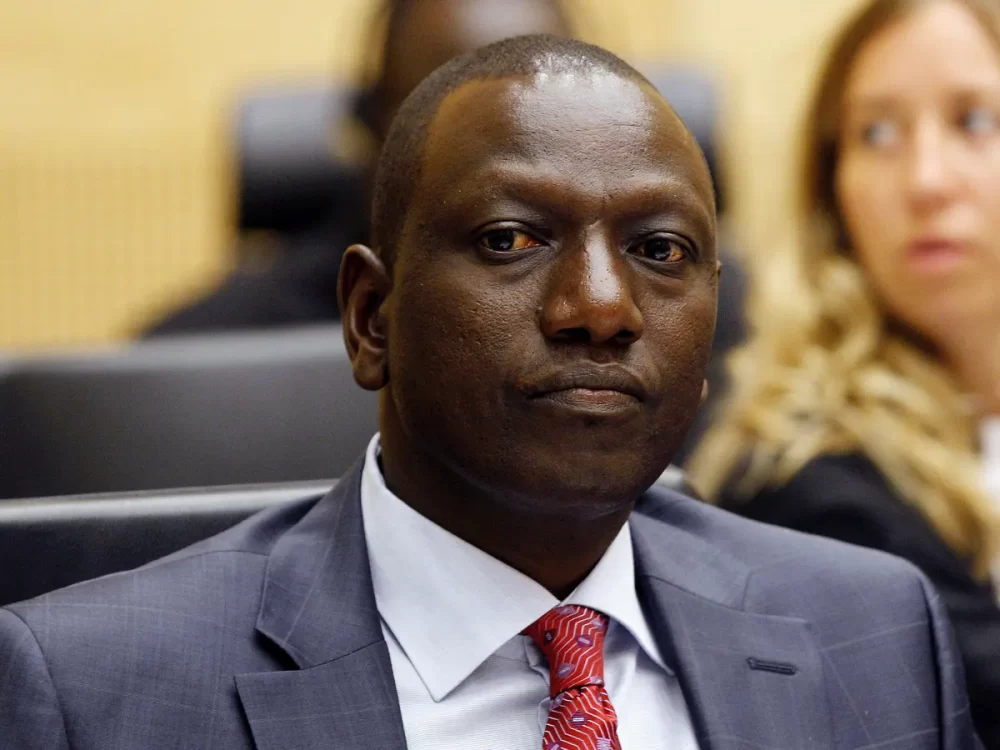
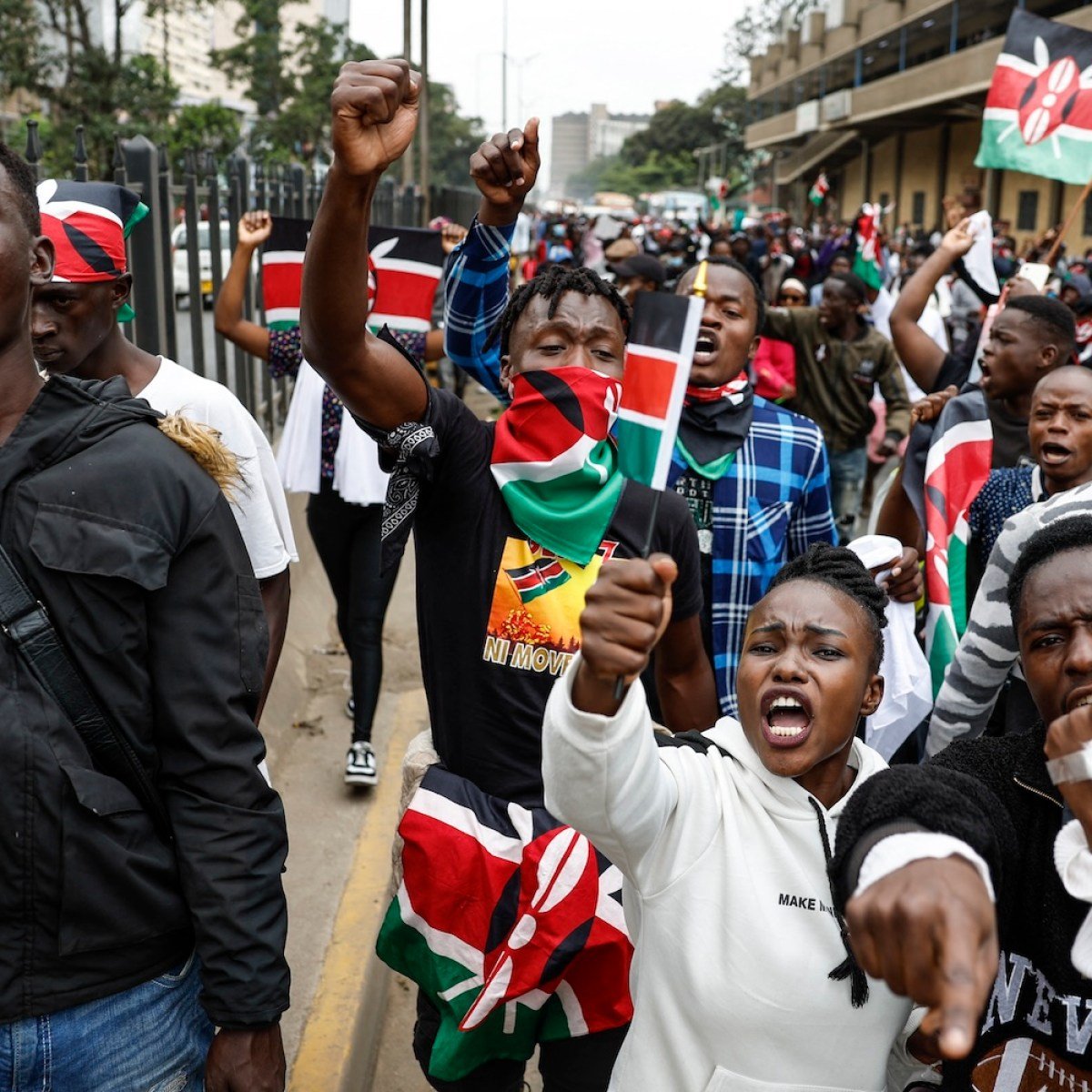


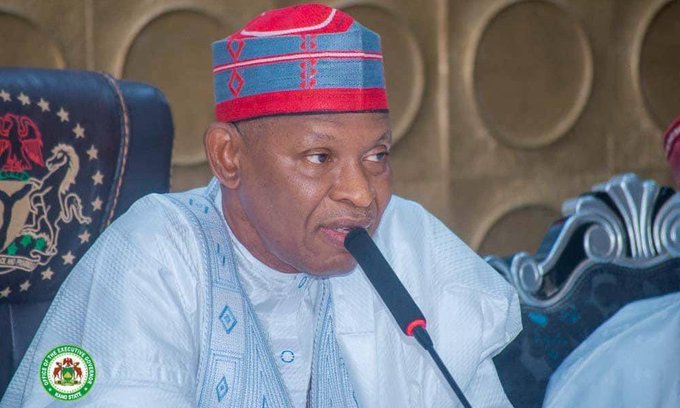
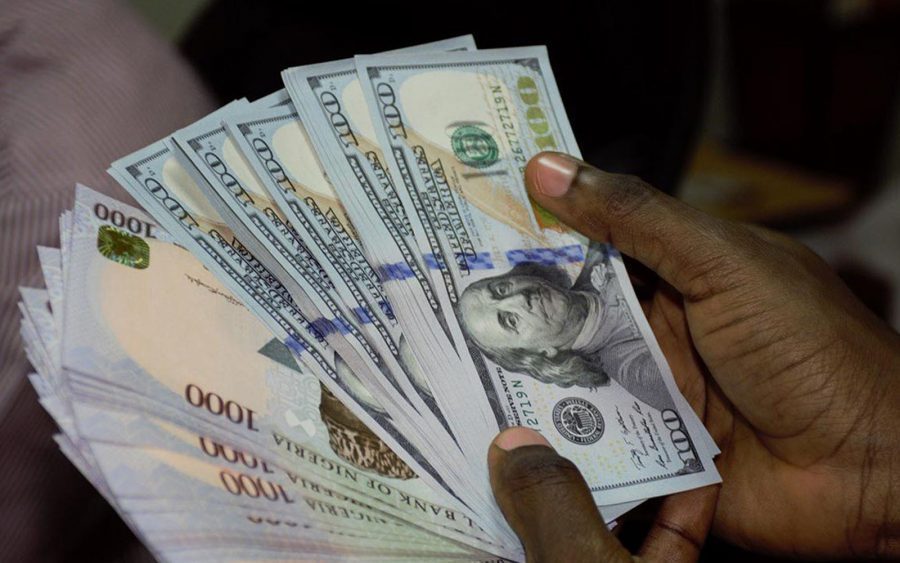
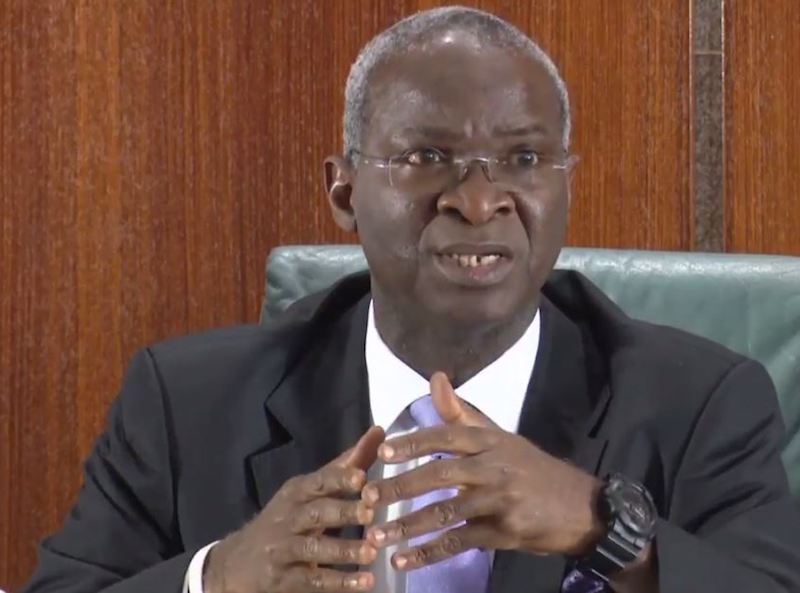
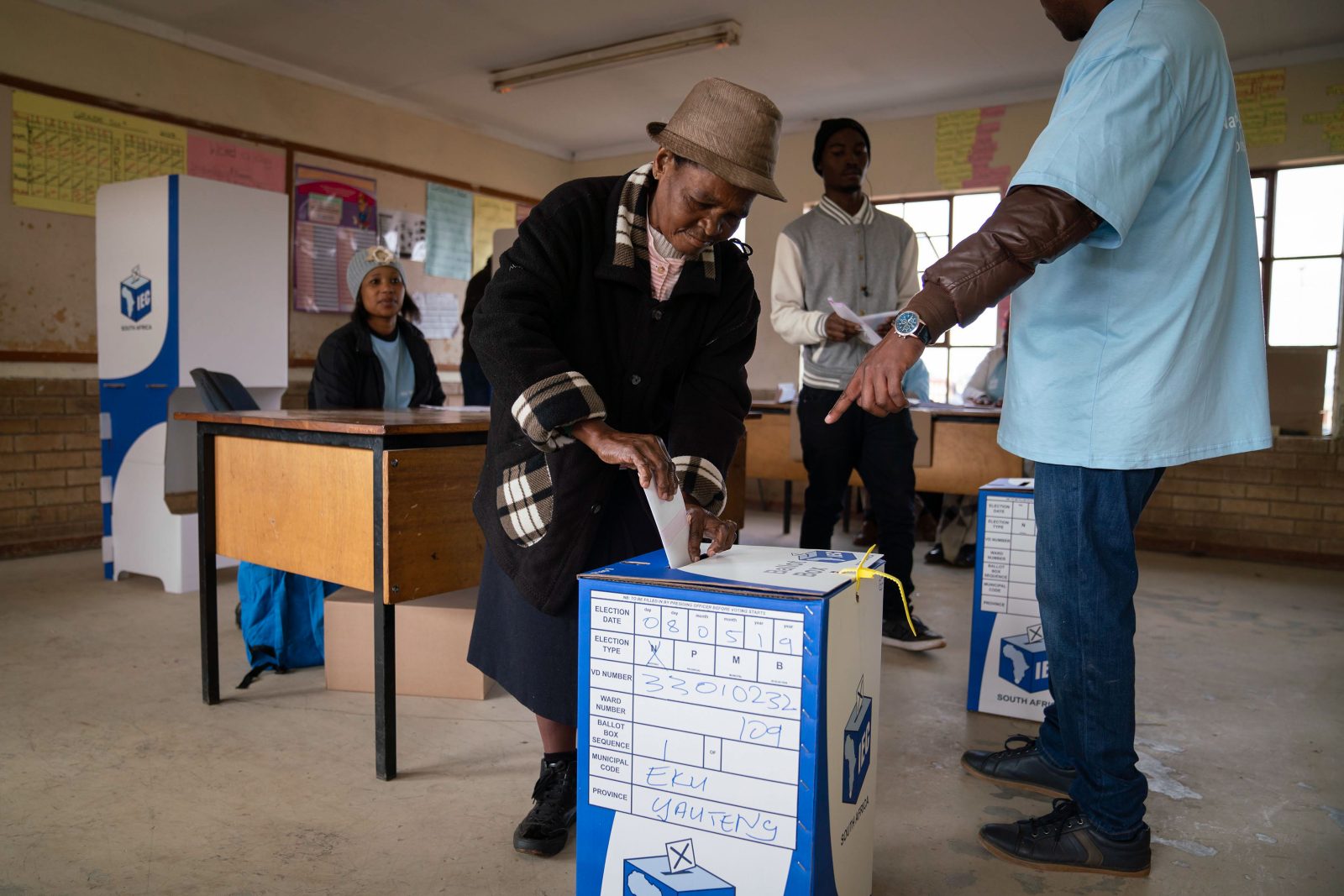

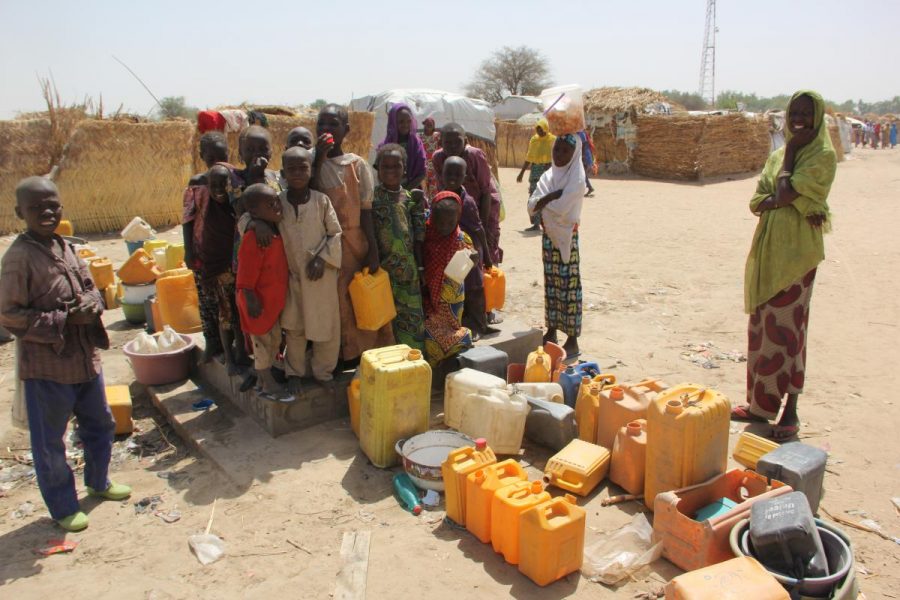
Leave a comment